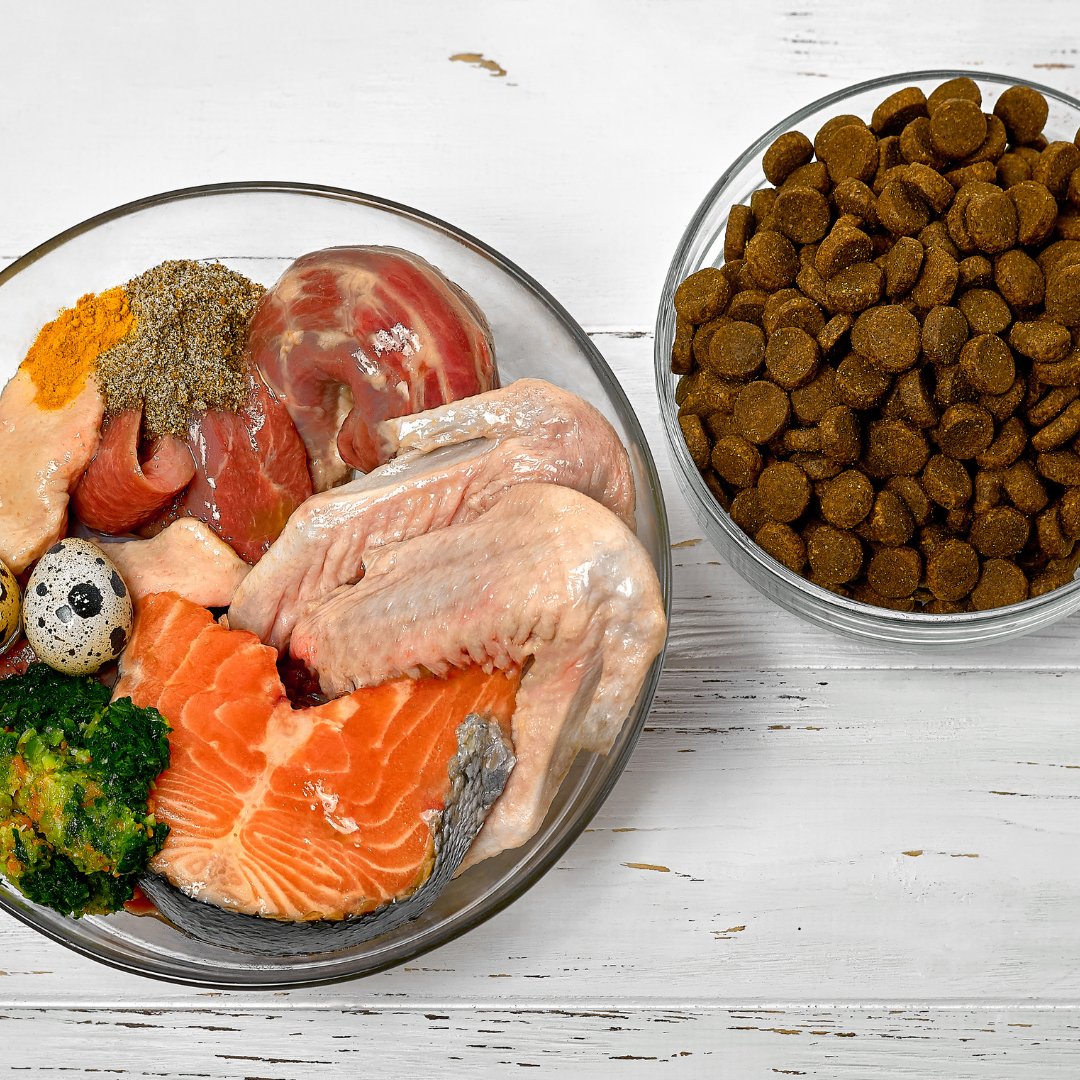
The Golden Spice: Benefits of Turmeric/Curcumin for Dogs
Most diseases stem from inflammation in the body. Golden Paste is a strong anti-inflammatory with many additional benefits.
Turmeric, often referred to as the "golden spice," has been used for centuries in traditional medicine for its numerous health benefits. The active compound in turmeric, curcumin, is renowned for its anti-inflammatory, antioxidant, and anti-cancer properties. In this blog post, we’ll delve into the advantages of turmeric/curcumin for dogs and share a recipe for Golden Paste, a convenient way to incorporate this superfood into your dog's diet.
Benefits of Turmeric/Curcumin for Dogs
1. Anti-Inflammatory Properties
Inflammation is a common issue in dogs, leading to conditions like arthritis, allergies, and even inflammatory bowel disease. Curcumin has strong anti-inflammatory effects that can help reduce swelling and pain associated with these conditions, improving your dog’s mobility and comfort.
2. Antioxidant Benefits
Curcumin is a powerful antioxidant, which helps combat oxidative stress and free radical damage in the body. This not only supports overall cellular health but also boosts the immune system, aiding in the prevention of chronic diseases and promoting longevity.
3. Anti-Cancer Potential
Studies have shown that curcumin has anti-cancer properties, including the ability to slow the growth of tumors and inhibit the spread of cancer cells, making turmeric a valuable complementary therapy to support your dog’s health.
4. Supports Joint Health
For dogs suffering from joint issues such as arthritis, turmeric can be particularly beneficial. Its anti-inflammatory and pain-relieving properties help reduce joint pain and stiffness, making it easier for your dog to move around comfortably.
5. Digestive Health
Turmeric can aid in digestion by stimulating bile production, which helps break down food and improve nutrient absorption. This can be especially helpful for dogs with digestive issues, promoting a healthier digestive tract.
Golden Paste Recipe for Dogs
Golden Paste is a popular way to introduce turmeric into your dog's diet. The addition of black pepper is crucial as it contains piperine, which significantly enhances the absorption of curcumin in the body.
Ingredients:
- 1/2 cup turmeric powder
- 1 cup water
- 1/4 cup coconut oil or olive oil
- 1-2 teaspoons freshly ground black pepper
- Optional: 1 tablespoon Ceylon cinnamon
Instructions:
- Mix Turmeric and Water: In a saucepan, combine the turmeric powder and water. Start with 1 cup of water and add more if needed to achieve a paste-like consistency.
- Cook the Mixture: Heat the mixture on low to medium heat, stirring continuously. Cook for about 7-10 minutes until you have a thick paste.
- Add Oil: Remove from heat and let the mixture cool slightly. Stir in the coconut oil or olive oil until well combined.
- Add Black Pepper: Add the freshly ground black pepper and mix thoroughly.
- Store: Transfer the Golden Paste to a glass jar with a lid. Store it in the refrigerator for up to two weeks.
Dosage and Administration
When introducing Golden Paste to your dog's diet, start with a small amount and gradually increase the dosage. A common starting dose is 1/4 teaspoon for small dogs and 1/2 teaspoon for larger dogs, given once daily. Over time, you can increase the amount to about 1/2 teaspoon for small dogs and up to 1 teaspoon for larger dogs, given twice daily. Mix the paste into your dog’s food to ensure they consume it.
The Importance of Black Pepper
Black pepper is a crucial component of Golden Paste because it contains piperine. Piperine enhances the bioavailability of curcumin, making it easier for the body to absorb and utilize. Without black pepper, most of the curcumin in turmeric would pass through the digestive system without being absorbed. This combination maximizes the health benefits of turmeric, ensuring your dog gets the most out of this powerful spice.
Conclusion
Turmeric/curcumin offers a host of benefits for dogs, from reducing inflammation and pain to supporting overall health and well-being. By incorporating Golden Paste into your dog’s diet, you can provide them with a natural remedy that enhances their quality of life.


